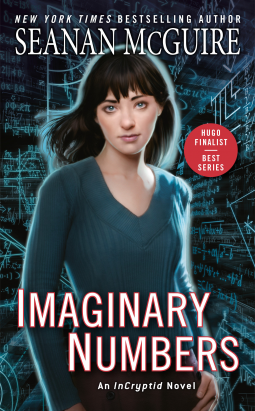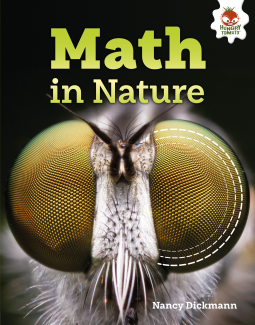Imaginary Numbers is the ninth book in the InCryptid series by Seanan McGuire. While I do suggest reading the series in order, and as a series, the books can stand fairly well on their own but newcomers will be missing out on some great backstory and character references that enhance the read. Since this is the first story from Sarah's perspective, there are worse places to start.
Sarah Zellaby has always been in an interesting position. Adopted into the Price family at a young age, she's never been able to escape the biological reality of her origins: she's a cuckoo, a telepathic ambush predator closer akin to a parasitic wasp than a human being. Friend, cousin, mathematician; it's never been enough to dispel the fear that one day, nature will win out over nurture, and everything will change. Maybe that time has finally come. After spending the last several years recuperating in Ohio with her adoptive parents, Sarah is ready to return to the world--and most importantly, to her cousin Artie, with whom she has been head-over-heels in love since childhood. But there are cuckoos everywhere, and when the question of her own survival is weighed against the survival of her family, Sarah's choices all add up to one inescapable conclusion. This is war. Cuckoo vs. Price, human vs. cryptid, and not all of them are going to walk away.
Imaginary Numbers is another well written story from McGuire, with dynamic characters and a healthy dose of danger. I have been wanted more from Sarah for a long time, and I am extremely glad to have this story. I got much more action that I really expected, and a little less Artie and Sarah together, but everything worked together quite well and I was happy with the way it all came together. I enjoyed getting inside Sarah's head, quite literally. There were a couple twists I did not expect, some explanations that tied some things up for me, and a few twists that I am hoping to see pop up in the next book. I do not want to go into too much detail, because it was a great ride and I want everyone to enjoy it as much as I did. My biggest complaints are that I missed the book before this somehow, which I am off to rectify now, and the story ended in such a way that I am pretty desperate for the next instalment already.
Imaginary Numbers is a must read for the McGuire's fans, and a solid story for other readers that might want to dive in to her well crafted worlds.








